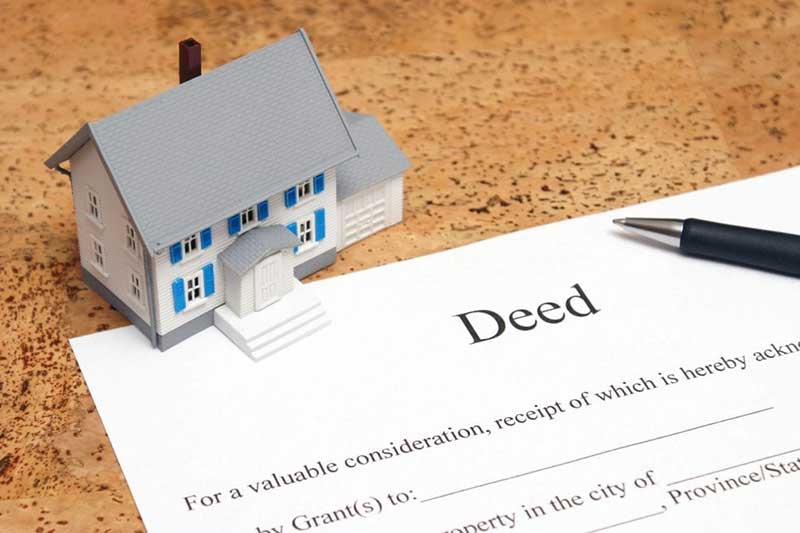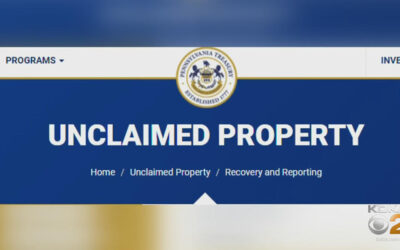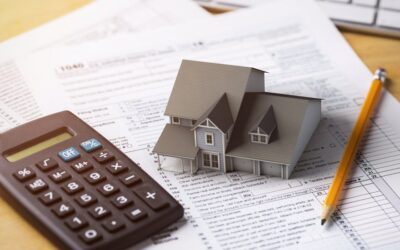Property deeds are legal documents that establish property ownership. They are crucial for various reasons, including selling or buying property, settling disputes, and verifying ownership. Understanding the significance of property deeds and knowing how to get copy of property deed online is essential for property owners.
A property deed is a legal document that signifies the transfer of ownership from one party to another. It contains essential details about the property, such as its description, location, and the names of the buyer and seller.
Having a copy of your property deed is vital for various reasons. It serves as proof of ownership, is required during property sales, and can be essential for resolving legal disputes related to property ownership.
Step 1: Determine the County or Parish of the Property
Before diving into the online search for a property deed, it’s essential to pinpoint the exact county or parish where the property is located. This is because property deeds are usually recorded and stored at a local level, and each county or parish may have its own specific database or registry for these records.
How to identify the location of the property:
- Property Tax Bills: One of the most straightforward ways to determine the county or parish of a property is by checking the property tax bill. This bill is sent annually to property owners and will typically list the county or parish where the property is located.
- Mortgage Documents: If you have a mortgage on the property, the county or parish will likely be mentioned in the mortgage agreement or related documents.
- Previous Sale Documents: If you’ve recently purchased the property, the county or parish should be mentioned in the sale or transfer documents.
- Online Property Search Tools: There are various online tools and websites where you can input the property’s address to determine its county or parish. Websites like Zillow or Redfin often provide this information in the property details section.
Importance of knowing the county or parish for accessing deeds:
- Specific Databases: Each county or parish typically has its own dedicated database or registry for property records. By knowing the specific county or parish, you can directly access the relevant database, making your search more efficient.
- Varied Processes: The process for accessing property deeds might vary from one county or parish to another. Some might offer online access, while others might require an in-person visit or a mailed request. Knowing the specific location can help you understand the process you’ll need to follow.
- Accuracy: Searching in the correct county or parish database ensures that you’re accessing accurate and up-to-date records. Searching in the wrong database can lead to confusion and potential legal complications.
Step 2: Research Online Databases and Resources
Once you’ve determined the county or parish of the property, the next step is to delve into online resources to access the deed. The digital age has made it easier than ever to obtain property records from the comfort of your home or office. Here’s a deeper dive into this step:
Overview of online databases for accessing property deeds:
1. County or Parish Official Websites: Most counties or parishes have official websites that provide a wealth of information, including property records. These websites often have a dedicated section for property deeds and other related records.
2. Dedicated Property Record Websites: There are several online platforms dedicated to providing property records, including deeds. Websites like CourthouseDirect.com or U.S. Title Records specialize in offering such services.
3. Real Estate Platforms: Websites like Zillow, Redfin, or Realtor might not provide detailed deed information but can be a starting point to gather basic property details, which can then be used on more specialized platforms.
Tips for a successful online deed search:
1. Use Accurate Information: Ensure that the property details you enter, such as the owner’s name, property address, or parcel number, are accurate. Small discrepancies can lead to unsuccessful searches.
2. Broaden Your Search: If you’re unable to find the deed using specific details, try broadening your search. For instance, instead of searching with the full name, use just the last name.
3. Check Multiple Sources: If one website doesn’t yield results, try another. Different platforms might have varying levels of comprehensiveness in their databases.
4. Understand Access Restrictions: Some counties or parishes might restrict online access to recent property deeds for privacy reasons. In such cases, you might need to visit the county recorder’s office in person or request the deed via mail.

Step 3: Follow Guidelines from County Tax Assessors
So, we are in step 3 of our guide on how to get copy of property deed online. The county tax assessor’s office plays a pivotal role in property-related matters. They maintain comprehensive records of all properties within their jurisdiction, making them an invaluable resource when searching for property deeds. Let’s delve deeper into this step:
How tax assessors can provide valuable information on accessing property deeds:
1. Comprehensive Property Records: Tax assessors maintain detailed records of all properties, including ownership history, property valuations, and tax-related information. These records often link directly to property deeds.
2. Guidance on Accessing Deeds: While their primary role revolves around property valuation and taxation, tax assessors are well-versed in the intricacies of property records. They can guide you on the best methods to access the specific deed you’re seeking, whether online, in person, or through other means.
3. Pointing to Relevant Databases: Not all counties or parishes have the same system for storing and accessing property deeds. The tax assessor’s office can direct you to the appropriate database or online platform specific to that county or parish.
Importance of contacting county tax assessors for guidance:
1. Accurate and Up-to-date Information: The tax assessor’s office ensures that property records are kept current. By reaching out to them, you’re more likely to obtain the most recent and accurate deed information.
2. Understanding Fees and Processes: There might be fees associated with obtaining a copy of a property deed. The tax assessor’s office can provide clarity on any costs, the payment methods accepted, and the overall process.
3. Personalized Assistance: While online databases are convenient, they can sometimes be challenging to navigate, especially if you’re unfamiliar with the system. The staff at the tax assessor’s office can offer personalized assistance, guiding you step-by-step and answering any queries you might have.
4. Alternative Solutions: If, for some reason, you’re unable to access the deed online, the tax assessor’s office can suggest alternative methods, such as visiting the county recorder’s office in person or requesting the deed via mail.
Read More: What Happens After a Title Search: Uncovering Property Ownership and Claims
Step 4: Understand the Process for Online Deed Searches
Navigating the digital landscape to find a property deed can be a daunting task, especially if you’re unfamiliar with the process. However, with a clear understanding of the steps involved, you can efficiently and effectively conduct an online deed search. Let’s break down this step in detail:
Step-by-step instructions for conducting online deed searches:
1. Access the Relevant Platform: Begin by visiting the official website of the county or parish where the property is located. Most local government websites have a dedicated section for property records or deeds.
2. Navigate to the Property Records or Deeds Section: Once on the website, look for sections labeled “Property Records,” “Land Records,” “Deeds,” or similar terms. This is where you’ll initiate your search.
3. Enter the Required Details: Most online search platforms will require specific details to locate a deed. This could be the property owner’s name, the property address, the parcel identification number, or other relevant identifiers.
4. Review the Search Results: After entering the details, the system will display a list of matching records. Browse through the results to find the relevant deed. Ensure you’re looking at the correct property and ownership details.
5. Access the Deed: Once you’ve identified the correct record, there will usually be an option to view or download the deed. Some platforms might offer a digital copy for free, while others might charge a nominal fee.
Tips for refining search results and accessing relevant property deeds:
1. Precision is Key: Ensure that all details entered, such as names or addresses, are accurate and spelled correctly. A minor typo can lead to unsuccessful search results.
2. Use Filters: Many online databases offer filters to narrow down search results. This can be particularly useful if you’re getting a large number of matches.
3. Be Aware of Variations: Property owners might have their names recorded in different ways. For instance, “Robert Smith” might also be listed as “Bob Smith” or “R. Smith.” If you’re not getting results with one variation, try another.
4. Check Document Dates: To ensure you’re accessing the most recent deed, check the date on the document. This is especially important if the property has changed hands multiple times.
5. Seek Help: If you’re struggling to find the deed or are unsure about the results, don’t hesitate to contact the county recorder’s office or the tax assessor’s office for assistance.

Step 5: Requesting Deeds by Mail or Online
While the digital age has made accessing property deeds online increasingly convenient, there are situations where you might need or prefer a physical copy of the deed. Additionally, not all counties or parishes may have fully digitized their records. In such cases, requesting a deed by mail or through online platforms becomes essential. Here’s a detailed breakdown of this step:
How to request physical copies of property deeds by mail:
1. Identify the Correct Office: The first step is to determine which office holds the property deeds. This is typically the county recorder’s office, the register of deeds, or a similar local government entity.
2. Gather Necessary Information: Before making a request, ensure you have all the necessary details about the property, such as the owner’s name, property address, legal description, and parcel or tax identification number.
3. Complete the Request Form: Many counties or parishes provide specific forms for requesting property records. Fill out the form with the required details. If there’s no designated form, a written request detailing what you’re seeking and why can suffice.
4. Pay the Fee: There’s often a fee associated with obtaining a physical copy of a property deed. This fee covers the cost of searching, copying, and mailing the document. Ensure you check the fee amount in advance and include it with your request, usually in the form of a check or money order.
5. Mail the Request: Once you’ve gathered all the necessary materials, mail your request to the appropriate office. It’s a good idea to send it via certified mail to track its delivery.
Online platforms and services for obtaining digital copies of property deeds:
1. Official County or Parish Websites: Many local government websites offer digital downloads of property deeds. After conducting a search and locating the relevant deed, there’s often an option to download a digital copy, either for free or for a nominal fee.
2. Third-party Platforms: Websites like CourthouseDirect.com or U.S. Title Records specialize in providing property records, including digital copies of deeds. These platforms might charge a fee for their services.
3. Email Requests: Some counties or parishes may accept email requests for digital copies of property deeds. Check the official website or contact the relevant office to inquire about this option.
Tips for a Successful Request:
1. Be Specific: The more details you provide in your request, the easier it will be for the office staff to locate the correct deed.
2. Follow Up: If you haven’t received a response within the expected timeframe, don’t hesitate to follow up with the office to check the status of your request.
3. Digital vs. Physical: Consider whether you truly need a physical copy or if a digital version will suffice. Digital copies are often quicker to obtain and may come with lower fees.
4. Check for Online Archives: Before making a mail request, check if the county or parish has online archives. Some older deeds might be available in digital archives even if they’re not in the main online database.
Step 6: Paying Associated Fees and Wait Times
Obtaining a copy of a property deed, whether online or through traditional methods, often involves certain fees. Additionally, depending on the method chosen, there might be a waiting period before you receive the deed. Here’s a detailed exploration of this step:
Discussion on potential fees associated with obtaining property deeds:
1. Search Fees: Some counties or parishes charge a fee just to search for a property deed, especially if you’re using their staff’s time or resources.
2. Copying Fees: If you’re requesting a physical or digital copy of the deed, there’s often a per-page fee. This fee covers the cost of copying and, in the case of physical copies, the materials used.
3. Mailing Fees: For mailed copies, there might be an additional fee to cover postage and handling.
4. Online Service Fees: Third-party platforms that provide property records might charge a service fee. This fee can vary based on the platform and the comprehensiveness of the records they provide.
5. Expedited Service Fees: If you need the deed urgently and wish to expedite the process, some offices or platforms offer faster services for an additional fee.
Typical wait times for receiving requested property deeds:
1. Digital Downloads: If you’re accessing the deed from an online database, especially from official county or parish websites, the download is often instantaneous.
2. Email Requests: If you’ve requested a digital copy via email, the response time can vary but typically ranges from a few hours to a few days, depending on the office’s efficiency.
3. Mailed Copies: For physical copies sent through the mail, the wait time can be more extended. After the office processes your request, which might take a few days, the mailing time can range from a few days to a few weeks, depending on your location and the efficiency of the postal service.
4. Third-party Platforms: Wait times on third-party platforms can vary widely based on the platform’s efficiency and the services they offer. Some might provide instant downloads, while others might take a few days to process and deliver the deed.
Tips for a Smooth Experience:
1. Clarify Fees in Advance: Before making a request, contact the relevant office or check the platform to understand all associated fees. This ensures you’re not caught off guard by unexpected costs.
2. Provide Accurate Information: Ensure all the details you provide, from property details to mailing address, are accurate. This can expedite the process and reduce potential delays.
3. Track Mailed Requests: If possible, use a mailing service that provides tracking. This allows you to monitor the progress of your request and know when to expect the deed.
4. Consider Digital Over Physical: If you don’t specifically need a physical copy, opting for a digital version can save both time and money.
Conclusion
So, now you know how to get copy of property deed online. Obtaining a property deed online is a straightforward process if you know where to look and what steps to follow. Remember to always use trusted sources, be aware of any associated fees, and update any legal documents with your acquired deed information.
FAQs (Frequently Asked Questions):
- Can I obtain a copy of a property deed online?
- Yes, many counties and trusted online databases offer digital copies of property deeds.
- What information do I need to search for a property deed online?
- Typically, you’ll need the property owner’s name, address, or parcel identification number.
- What if I can’t find the property deed online?
- You can contact the county recorder’s office or a local authority for assistance.
- How long does it take to receive a copy of a property deed by mail?
Mehedi Miraz is the passionate writer behind RealEstateTracer.com. With a love for writing and a fascination for the world of property, Mehedi has honed his expertise through years of dedicated research. His words breathe life into every aspect of the industry, making complex topics simple and enjoyable to explore. Armed with valuable insights, Mehedi is on a mission to share knowledge, empowering readers to navigate the real estate landscape with confidence.






